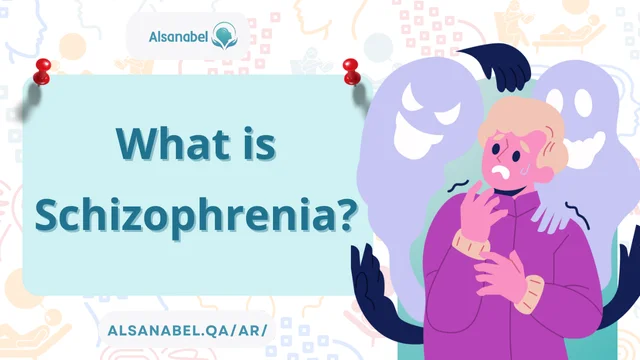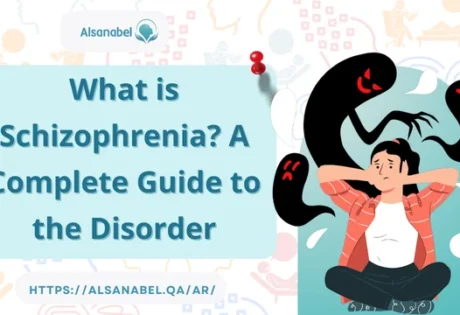
Schizophrenia is one of the most complex and challenging mental health disorders, significantly affecting an individual’s perception, thoughts, emotions, and behaviors. It is a chronic condition that requires a deep understanding to manage effectively. In this article, we will explore the intricacies of schizophrenia, its symptoms, causes, and available treatments while addressing ways to support those living with this condition.
What is Schizophrenia?
Schizophrenia is a severe mental health disorder characterized by disruptions in thought processes, perceptions, emotional responsiveness, and social interactions. Unlike common misconceptions, it does not involve a “split personality.” Instead, it affects how individuals interpret reality, often leading to distorted thoughts and hallucinations.

Recognizing the Symptoms
Primary Indicators
Schizophrenia symptoms manifest differently in each individual, but common signs include hallucinations, delusions, disorganized thinking, and impaired social interactions. These symptoms are typically categorized into positive, negative, and cognitive symptoms.
Positive Symptoms
Positive symptoms refer to the presence of abnormal behaviors, such as auditory or visual hallucinations and delusions. For instance, an individual may hear voices that are not there or believe in ideas that lack factual basis.
Negative Symptoms
Negative symptoms involve a reduction in normal functions. These may include emotional flatness, reduced speech, withdrawal from social activities, and difficulty in experiencing pleasure.
Cognitive Symptoms
Cognitive impairments are often subtle but can significantly impact daily life. These include difficulties with memory, concentration, and problem-solving skills.
What Causes Schizophrenia?
Genetic Factors
The causes of schizophrenia are multifaceted, with genetics playing a significant role. Individuals with a family history of the condition are at a higher risk of developing it themselves.
Neurochemical and Structural Changes
Imbalances in neurotransmitters, particularly dopamine and glutamate, have been linked to it. Additionally, structural abnormalities in the brain, such as reduced gray matter, may contribute to its onset.
Environmental Triggers
Stressful life events, prenatal exposure to infections, and substance abuse, especially during adolescence, are thought to trigger it in predisposed individuals.
How is Schizophrenia Diagnosed?
Initial Assessments
Schizophrenia diagnosis typically involves comprehensive evaluations, including medical history, psychological assessments, and observation of symptoms. It is crucial to differentiate it from other mental health conditions, such as bipolar disorder or major depression with psychotic features.
Diagnostic Tools
Psychiatrists may use standardized criteria, such as those outlined in the DSM-5 (Diagnostic and Statistical Manual of Mental Disorders), to confirm a diagnosis. Brain imaging and blood tests might also be used to rule out physical conditions that mimic disorder.
Treatment Options
Medications
Schizophrenia treatment often begins with antipsychotic medications to reduce the severity of symptoms. These medications target neurotransmitter imbalances and are classified into two categories:
- Typical Antipsychotics: These older drugs are effective but may cause significant side effects.
- Atypical Antipsychotics: Newer medications with fewer side effects, making them more tolerable for long-term use.
Therapy and Rehabilitation
Psychosocial interventions are vital for improving daily functioning. Cognitive-behavioral therapy (CBT) helps individuals manage symptoms and challenge delusional thoughts. Additionally, vocational training and social skills programs aid in reintegration into the community.
Lifestyle Modifications
Adopting a healthy lifestyle, including regular exercise, a balanced diet, and stress management techniques, can significantly enhance the quality of life for individuals with this disorder.
The Role of Family and Support Systems
Understanding and Patience
Family members play an integral role in the recovery process. By understanding the nature of it, they can provide emotional support and foster a stable environment.
Encouraging Adherence to Treatment
Encouraging consistent medication use and participation in therapy sessions at Al Sanabel Specialized Psychiatric Center In Qatar is crucial for long-term management. Family members can also assist by monitoring for potential side effects or relapse.
Support Groups
Joining support groups can provide individuals and their families with a platform to share experiences, learn coping strategies, and feel less isolated.
Dispelling Myths About Schizophrenia
Not a Death Sentence
With proper treatment and support, many individuals with this disorder lead fulfilling lives. Misconceptions about the condition often exacerbate stigma, making it essential to raise awareness and educate communities.
Violence is Rare
Contrary to popular belief, individuals with this disorder are not inherently violent. Most are more likely to be victims of violence than perpetrators.
Challenges in Managing Schizophrenia
Treatment Resistance
Some individuals may not respond to standard treatments, requiring alternative approaches such as clozapine or electroconvulsive therapy (ECT).
Social Stigma
The stigma associated with this disorder often leads to social isolation and reduced access to care. Advocacy and education are key to changing perceptions.
Answers to Common Questions

1. What are the early signs of schizophrenia?
Early signs include social withdrawal, unusual thinking, difficulty concentrating, and changes in mood or behavior. These symptoms may gradually progress to more severe manifestations.
2. How is schizophrenia treated?
Treatment typically involves a combination of antipsychotic medications, psychotherapy, and lifestyle adjustments. Early intervention significantly improves outcomes.
3. Can schizophrenia be cured?
While there is no definitive cure for schizophrenia, it can be effectively managed with the right combination of treatments and support.
4. What causes schizophrenia?
Schizophrenia is caused by a combination of genetic predisposition, neurochemical imbalances, brain structure abnormalities, and environmental factors.
5. How can family members support someone with schizophrenia?
Families can support individuals by educating themselves about the condition, encouraging treatment adherence, and providing a stable and understanding environment.
Schizophrenia is a complex disorder that requires a holistic approach to treatment and support. By understanding its symptoms, causes, and treatments, individuals and their families can take proactive steps toward managing the condition. With early intervention and a robust support system, those affected by this disorder can achieve a higher quality of life and overcome many of the challenges posed by this disorder.
%20(2).jpg)


